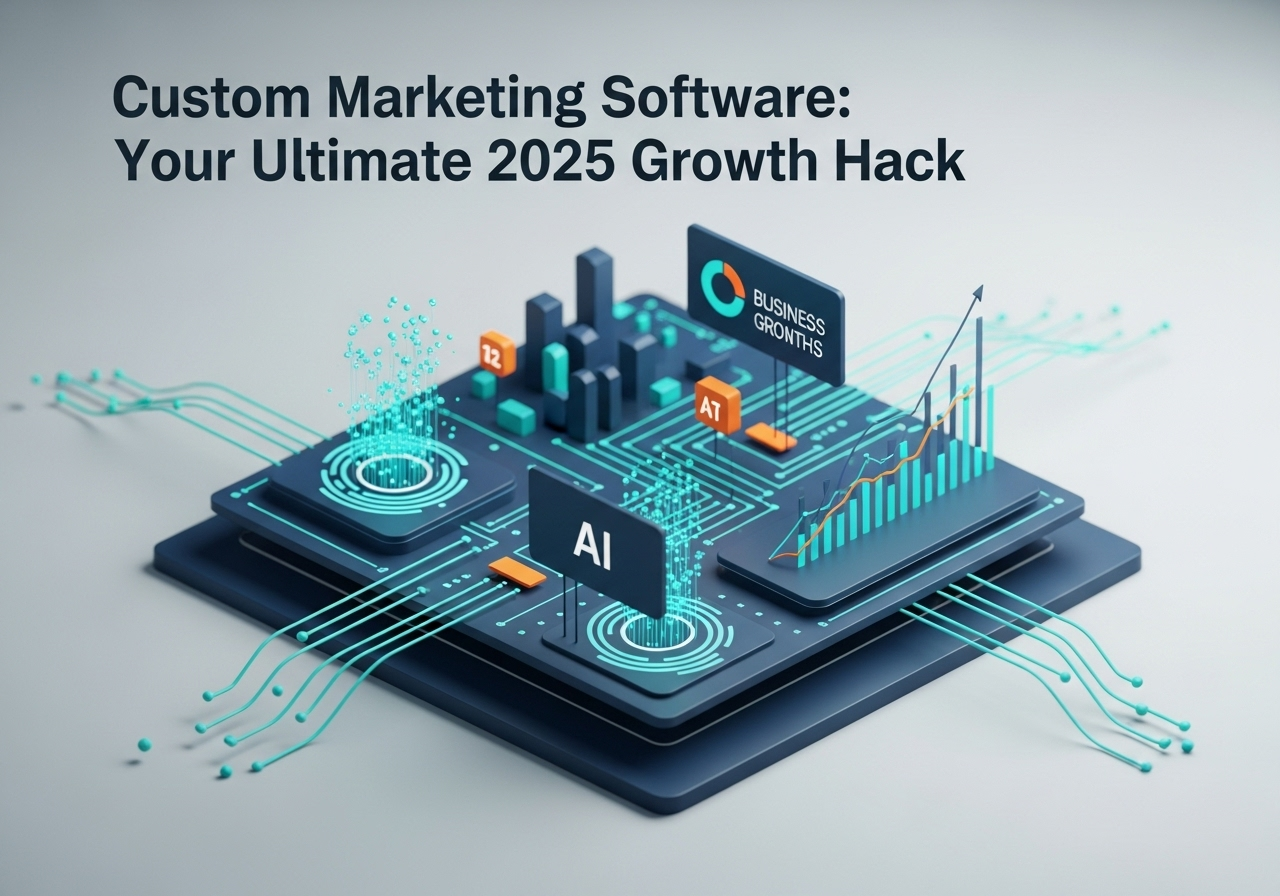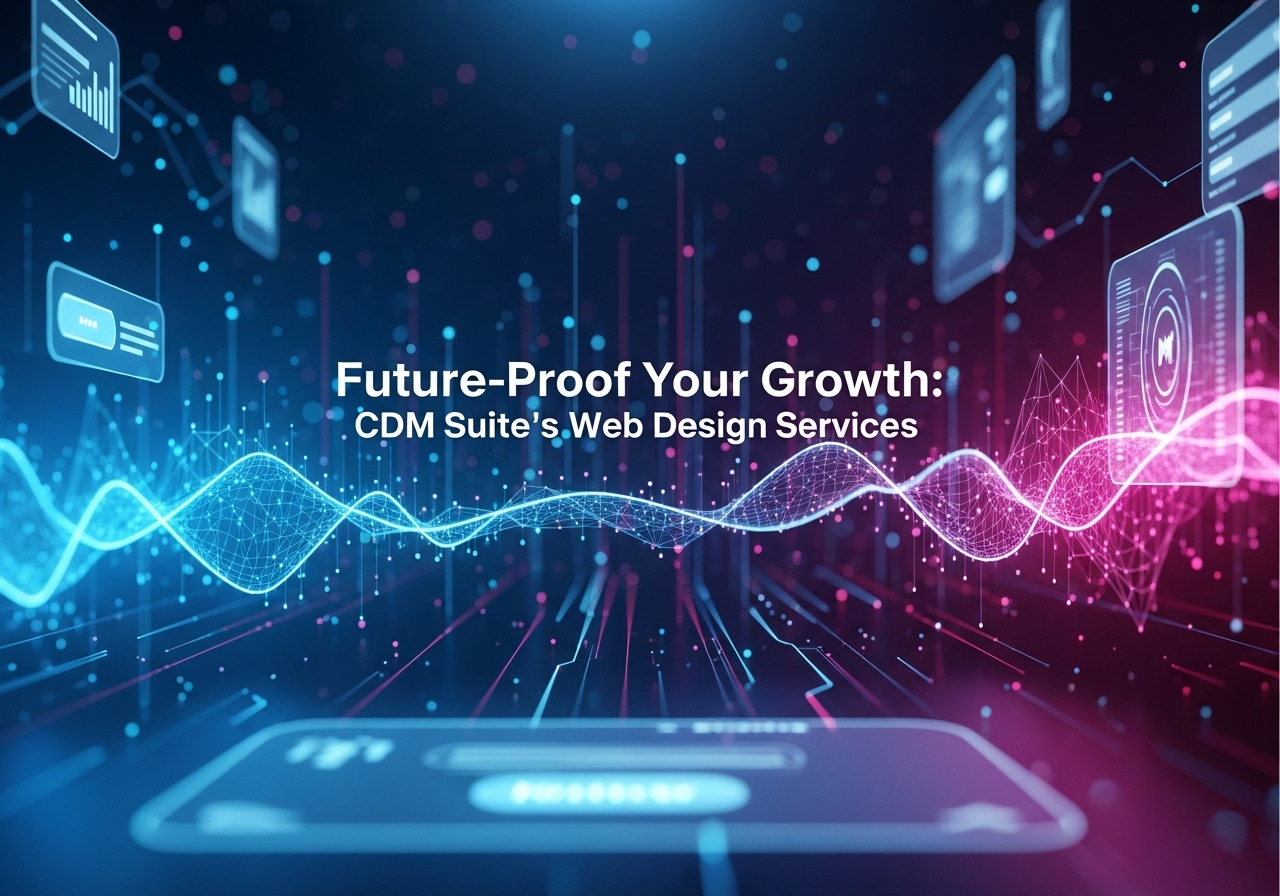Did you know that, according to a report by Gartner, 75% of organizations now believe that a customized approach to digital marketing technology is vital for achieving competitive advantage? As we move through 2025, the landscape of digital marketing continues to evolve at an unprecedented pace, making generic solutions increasingly obsolete. Consequently, the future belongs to businesses that embrace personalization through custom digital marketing software development.
The Evolution of Digital Marketing Software in 2025
The digital marketing landscape of 2025 is vastly different from what we knew just a few years ago. With technological advancements accelerating and consumer behaviors shifting rapidly, businesses face new challenges in reaching and engaging their target audiences effectively.
Why Generic Solutions No Longer Cut It
In today’s hyper-competitive market, off-the-shelf marketing software simply cannot provide the competitive edge businesses need. Generic solutions offer limited customization options and often force companies to adapt their processes to the software rather than the other way around. This one-size-fits-all approach is becoming increasingly ineffective as market demands grow more sophisticated.
Custom digital marketing software development addresses this gap by creating tailored solutions that align perfectly with your unique business workflows, challenges, and goals. By investing in custom development, you gain exclusive tools designed specifically for your organization’s needs, providing a significant advantage over competitors using standardized solutions.
Key Trends Driving Custom Digital Marketing Software in 2025
AI-Powered Marketing Automation
Artificial Intelligence is no longer just a buzzword—it has become foundational to modern digital marketing strategies. In 2025, AI-driven features are revolutionizing how businesses approach marketing automation.
Custom AI marketing solutions now offer unprecedented capabilities:
- Hyper-personalized customer experiences based on real-time behavior analysis
- Predictive analytics that forecast consumer trends before they emerge
- Automated content creation and optimization that adapts to audience preferences
- Conversational marketing interfaces that provide human-like interactions
By integrating AI into your custom digital marketing software, you can automate complex tasks while maintaining a personal touch that resonates with your audience. Ultimately, this combination of efficiency and personalization is driving remarkable results for businesses across industries.
Cloud-Native Architecture for Scalability
Cloud computing has fundamentally changed how marketing software is built and deployed. In 2025, cloud-native architectures are enabling businesses to create more flexible, scalable marketing solutions that grow alongside their operations.
Custom cloud-native marketing platforms offer several advantages:
- Seamless scalability to handle fluctuating marketing campaign demands
- Cost efficiency through pay-as-you-go models that eliminate wasted resources
- Continuous updates and improvements without disrupting operations
- Enhanced collaboration capabilities for distributed marketing teams
By developing custom cloud-native marketing software, businesses can ensure their marketing infrastructure remains agile and responsive to changing market conditions while minimizing unnecessary overhead costs.
Data Analytics and Unified MarTech
The exponential growth of data has made advanced analytics capabilities essential for effective digital marketing. In 2025, custom software development is increasingly focused on creating unified marketing technology (MarTech) ecosystems that seamlessly integrate data from multiple sources.
Modern custom marketing analytics platforms deliver:
- Comprehensive dashboards that visualize complex marketing performance metrics
- Cross-channel attribution models that accurately track customer journeys
- Predictive modeling to optimize marketing spend and resource allocation
- Real-time reporting capabilities for agile decision-making
With a unified MarTech approach, businesses can eliminate data silos and gain a 360-degree view of their marketing performance, enabling more informed strategic decisions and improved ROI.
The Process of Developing Custom Digital Marketing Software
Creating effective custom marketing software requires a structured approach that ensures the final product aligns perfectly with your business objectives.
Discovery and Strategy Development
The foundation of successful custom software development lies in thoroughly understanding your specific marketing challenges and goals. During this phase, developers work closely with your marketing team to:
- Identify pain points in your current marketing processes
- Define clear objectives for the custom software
- Map user journeys and functionality requirements
- Establish key performance indicators for measuring success
This collaborative approach ensures that the resulting software directly addresses your most pressing marketing needs while supporting your broader business strategy.
Design and User Experience
In 2025, user experience has become a critical differentiator in digital marketing software. Therefore, custom development allows for the creation of intuitive interfaces that match your team’s workflows and preferences.
Effective design for marketing software focuses on:
- Intuitive navigation that minimizes learning curves
- Streamlined workflows that enhance productivity
- Responsive layouts that function seamlessly across devices
- Branded elements that reinforce your company identity
By prioritizing user experience in your custom marketing software, you can significantly improve adoption rates and maximize the return on your development investment.
Development and Integration
The actual coding and construction of your custom marketing software must be approached with flexibility and scalability in mind. In 2025, development practices emphasize:
- Modular architecture that allows for future expansion
- API-first development for seamless integration with existing tools
- Robust security measures to protect sensitive marketing data
- Automated testing to ensure reliability under various conditions
Additionally, integration capabilities are paramount, as your custom marketing software must work harmoniously with your existing technology stack, including CRM systems, e-commerce platforms, and analytics tools.
Implementation and Optimization
Once developed, your custom marketing software requires careful implementation and continuous optimization to deliver maximum value. This ongoing process includes:
- Comprehensive training for marketing team members
- Data migration from legacy systems
- Performance monitoring and regular maintenance
- Iterative improvements based on user feedback and changing needs
The most successful custom marketing software implementations view the launch as just the beginning, with ongoing refinement driving increasing returns over time.
Key Components of Custom Digital Marketing Software in 2025
Advanced SEO Optimization Tools
Search engine optimization remains a cornerstone of digital marketing strategy in 2025, but its complexity has increased dramatically. Custom SEO tools now incorporate:
- AI-powered keyword research that identifies emerging search trends
- Content optimization features that align with evolving search engine algorithms
- Technical SEO monitoring that automatically identifies and resolves issues
- Local SEO capabilities that enhance visibility in specific geographic markets
With custom SEO software, businesses can maintain visibility and adapt quickly to algorithm changes. You can discover more SEO strategies in our latest blog posts.
Omnichannel Campaign Management
Modern marketing requires seamless coordination across multiple channels. Custom campaign management software in 2025 enables:
- Centralized planning and execution of cross-channel campaigns
- Automated content distribution with channel-specific optimizations
- Synchronized messaging that maintains brand consistency
- Performance tracking that identifies the most effective channel combinations
This integrated approach ensures your marketing messages reach customers at the right time through their preferred channels, maximizing impact and conversion rates.
Customer Journey Orchestration
Understanding and optimizing the customer journey has become essential for marketing success. Custom journey orchestration software provides:
- Visual mapping tools that illustrate complex customer paths
- Trigger-based automation that delivers timely, relevant content
- Personalization engines that adapt experiences to individual behaviors
- Journey analytics that identify conversion obstacles and opportunities
By developing custom journey orchestration capabilities, businesses can create more coherent, engaging customer experiences that drive loyalty and lifetime value.
The Business Case for Custom Digital Marketing Software
ROI Considerations
While custom software development requires significant investment, the return on investment can be substantial when properly aligned with business objectives.
Key ROI factors to consider include:
- Increased marketing efficiency through automation
- Improved conversion rates via personalized experiences
- Enhanced competitive advantage through unique capabilities
- Reduced costs by eliminating redundant software subscriptions
When evaluating the business case for custom development, it’s essential to consider both immediate benefits and long-term strategic advantages.
Scalability and Future-Proofing
One of the most compelling advantages of custom marketing software is its ability to evolve alongside your business. As your marketing needs grow, custom solutions can be adapted without the limitations of off-the-shelf products.
This scalability provides:
- Protection against technological obsolescence
- Adaptability to changing market conditions
- Capacity to support business growth without disruptive platform changes
- Ability to quickly incorporate emerging technologies
By investing in custom development now, businesses can create a foundation for sustainable marketing success well beyond 2025.
Implementation Challenges and Solutions
Resource Requirements
Developing custom marketing software demands significant resources, including technical expertise, time, and budget. To manage these requirements effectively, you should consider phased development, explore hybrid solutions, leverage development partnerships, and establish clear governance structures.
Security and Compliance Considerations
As marketing becomes increasingly data-driven, security and compliance have emerged as critical concerns. Custom development must address data protection regulations, secure handling of customer information, and robust access controls. Building security and compliance into your software from the ground up is crucial.
Looking Ahead: The Future of Custom Digital Marketing Software
As we move through 2025 and beyond, several emerging trends will continue to shape the evolution of custom marketing software. These include agentic AI, augmented reality integrations, and blockchain-based attribution. Businesses that embrace custom development will be best positioned to capitalize on these innovations.
Taking the Next Step
Custom digital marketing software development represents a significant opportunity for businesses seeking to differentiate themselves. By creating tailored solutions that align with your specific objectives, you can achieve levels of marketing effectiveness not possible with generic alternatives.
The journey begins with a thorough assessment of your current capabilities and future requirements. Find out EXACTLY what’s missing in your marketing strategy! Visit cdmsuite.com/free-3-minute-marketing-assessment-get-a-custom-growth-plan/ for a free 3-minute assessment and receive a custom growth plan tailored to your business’s unique needs and challenges.



